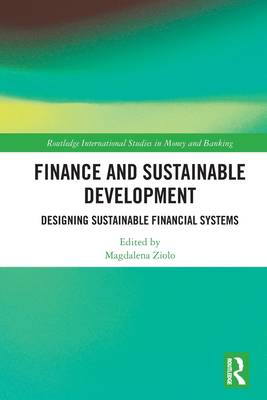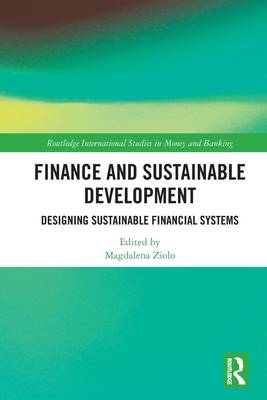
- Retrait gratuit dans votre magasin Club
- 7.000.000 titres dans notre catalogue
- Payer en toute sécurité
- Toujours un magasin près de chez vous
- Retrait gratuit dans votre magasin Club
- 7.000.0000 titres dans notre catalogue
- Payer en toute sécurité
- Toujours un magasin près de chez vous
Finance and Sustainable Development
Designing Sustainable Financial Systems
Description
There are many studies confirming the relationship between financial systems and economic development, but there are few which examine the degree to which financial systems a) impact the quality of information, b) influence sound corporate governance, c) ensure effective mechanisms of risk management, d) mobilize savings and f) facilitate trade. In the context of sustainability, there should also be a line of inquiry into how a particular financial system influences the assurance and implementation of sustainable development principles and goals.
This book delivers a methodological approach to designing and assessing sustainable financial systems. It provides an original contribution by prioritizing ESG factors in the decision-making process of financial institutions and identifying their impact on sustainable financial systems. The author argues that to achieve financial stability, it is necessary to have in place mechanisms designed to prevent financial problems from becoming systemic and/or threatening the stability of the financial and economic system, while maintaining (or not undermining) the economy's ability to sustain growth and perform its other functions.
The book primarily takes a simulation and experimental approach. It is the first book to take such a comprehensive look at sustainable financial systems as opposed to sustainable finance in general. It will appeal to academics, students and researchers in the fields of economics, finance and banking, business, management and political and social sciences.
Spécifications
Parties prenantes
- Editeur:
Contenu
- Nombre de pages :
- 272
- Langue:
- Anglais
- Collection :
Caractéristiques
- EAN:
- 9780367693824
- Date de parution :
- 01-08-22
- Format:
- Livre broché
- Format numérique:
- Trade paperback (VS)
- Dimensions :
- 156 mm x 234 mm
- Poids :
- 412 g

Les avis
Nous publions uniquement les avis qui respectent les conditions requises. Consultez nos conditions pour les avis.





